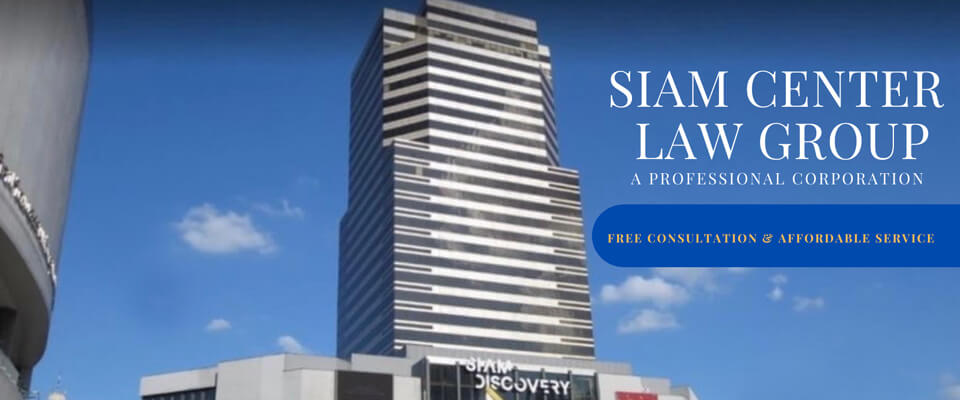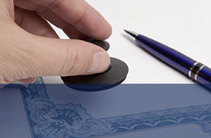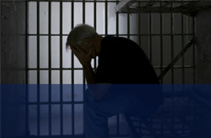Bail, what is it?
For foreign persons arrested in Thailand, bail is an amount of money paid to the court in cash to obtain the defendant’s release from police custody and to guarantee the defendant’s appearance in court.
Is paying bail a difficult process?
In many countries the paying of a pre-set bail amount will secure the release of a defendant being held in police custody. This is not the case in Thailand. In Thailand a defendant can not be released from prison until the presiding judge approves the defendants release and approves the amount of bail to be paid. Successful bail applications are typically the result of a compelling brief attached to the bail application that has been prepared by an experienced defense attorney. If the defendant is not represented by an experienced criminal defense attorney his or her bail request will very likely be denied.
How much is bail (money) do we have to pay?
Depending on the severity of the crime, bail amounts can range from 50,000 Thai Baht to over 1 million Thai Baht. Bail amounts vary depending on the nature of the crime or crimes the defendant has been charged with. Bail can be denied in certain high profile cases and for crimes that carry sever penalties. In 90% of criminal cases the amount of bail for a particular crime is pre-set by the court. These pre-set bail amounts have been set for Thai people, not for foreign people who’s primary domicile is in another country. Every bail application is reviewed by the presiding judge and will be approved or denied based on the quality of the arguments contain in the bail application. If bail is denied at the amount pre-set by the court it is incumbent upon the defendant to offer an amount of money that is acceptable to the presiding judge. It is often difficult to guess an amount that will be acceptable to the presiding judge without the assistance of an experienced criminal defense attorney.
When I pay the bail, will I get it back? - When will I get it back?
In all cases the court will provide a bail receipt. If the defendant conforms to all the conditions of his or her release and appears each and every time he or she is required to appear, the monies will be returned by the court upon final disposition of the criminal case.
The court wants me to pay bail in the amount of 800,000 Thai Baht. Can you get this amount lowered?
While it is possible to get a bail reduction, it will be dependant upon: (i) the nature of the crime the defendant has been charged with, and the particulars alleged, (ii) if the defendant has had bail in the past and if he or she has adhered to all conditions, (iii) if the defendant is a flight risk in the eyes of the court, (iv) if there are objections from the police or prosecutor. We can review the facts for you and provide an advisory opinion.
Who really has control of my case?
The police investigate the case with an “investigating officer” in charge. The police will build a case against the defendant with witnesses and physical evidences. When the police have completed their investigation all evidences against the defendant will be turned over to the prosecutor’s office for prosecution in the courts. The prosecutor can instruct the police to conduct additional investigations and the prosecutor can also investigate. The prosecutor will prepare all witnesses prior to giving testimony in the court during the trial. The case is under the control of the police until transferred to the prosecutor’s office. The prosecutor will then present the evidence against you to the court and provide the court with witnesses who will testify in support of the charges against you.
What are the steps of the criminal prosecution at the court?
After the defendant is charged by the police, the police have 48-84 days, depending upon the seriousness of the charges, to complete their investigation and send the case to the prosecutor. The defendant will then be arraigned at the criminal court. This is the formal indictment by the prosecutor of the defendant on the charges brought by the police for which the defendant was arrested. The charges against the defendant will be read and the defendant will be informed of the charges against him. At the arraignment the defendant will enter a plea of guilty or not guilty. The court will also reconsider bail at this time. In almost all cases bail remain as previously paid. In extremely rare cases bail can be increased. The court will ask the defendant if he is represented by counsel. If the defendant is not represented by counsel he will be assigned a court appointed attorney. As in most countries, court appointed attorneys are not known for providing their clients with an effective defense. Within 1-2 months of the arraignment all parties will appear at the court for a readiness hearing or pre-trial conference where witness lists are submitted and trial dates are selected. Trial dates are set by agreement of the court, prosecutor, and defense attorney. Depending upon the court calendar the trial could start as soon a 6 months or as much as 12 months from the date of arraignment. Trials typically last 2-7 days. At the end of the trial the court will render its decision within 1-3 months. Verdicts are determined by 1-3 judges.
A defendant will appear in court 1) for an arraignment/indictment, 2) Readiness hearing/Pre-trial conference, 3) Trial. 4) Reading of the verdict.
If found guilty the defendant can appeal the judgment. The defendant will need to apply for bail again. In cases where the sentence is less than 10 years imprisonment the court can hear a bail request immediately. In cases where the sentence exceeds 10 years imprisonment bail requests are sent to the appeals court and the defendant will be incarcerated for 3-7 days while waiting for the decision from the appeals court. If all prior conditions of the previous bail have been met by the defendant bail is typically approved for the appeal.
How long can the police hold someone?
Legally, a suspect can be held for a maximum of 48 hours, not including weekends and official Thai holidays, before being officially charged with a crime. But anything is possible in Thailand. It is always best to inform the investigating officer the suspect is represented by counsel as soon as possible.
How long can a person be held in prison?
A suspect in a criminal case can be held by the police for 48 hours before being charged with a crime. The police then have a maximum period of 84 days to complete their investigation before delivering the case to the prosecutor. When the prosecutor formally indicts the defendant the defendant may apply for bail at that time. If the defendant is represented by counsel an application for bail can be submitted to the police or court at any time.
What are the conditions like in a Thai prison?
There is no more accurate way of describing the conditions in Thai prisons as to simply call it hell. If you can imagine what hell is like, then you can imagine what life is like in Thai prison. Prisoners sleep on a rough and unclean and unpainted cement floor. There are no cells. There are big open rooms. Rooms that were designed to accommodate 50 people typically house 250 people. Prisoners sleep close to other prisoners, similar to people who are involved in an intimate relationship. A prisoner is touched on both sides of his body by other prisoners. A group anywhere from 6-12 squat toilets is where prisoners defecate. These toilets do not have water and do not flush. Excrement from one prisoner simply piles on top of the excrement of another prisoner. Prisoner must stand above a foul smelling pile of excrement to relieve themselves. Infectious skin deceases are very common. Pink eye can take over an entire prison very quickly. Tuberculosis (TB) will infect all persons in the same room. Lice are common so all inmates heads are shaved. Temperatures are high. The heat is unbearable and many die or experience severe illnesses. Medical treatment is non-existent. Our clients often report of seeing prisoners die due to the lack of even basic medical treatment. Prisoners who had been on a prescription medication prior to incarceration will no longer have access to or receive those medications. A small amount of rice is provided once daily resulting in extreme weight loss. The psychological effects of spending just a few days in a Thai prison will last a life time.
How often will you see the defendant while he/she is in prison?
Weekly or as necessary until bail is approved.
What is your fee for a bail application?
50,000 Thai Baht for cases in the Bangkok metropolitan area. 65,000 Thai Baht for all other areas of Thailand. If bail is denied we will appeal the denial for no additional charge.
Do you accept credit cards?
No, bail payments must be paid in cash. The term “charge back” applies to a credit card holder disputing a charge. If we accepted a credit card payment that is later charged back we would be financially liable for the full amount.
Obviously I need to send you a large amount of money. How can I be assured of your honesty, how can I trust you?
As you can see on other parts of this website Garn Tuntasatityanond is a duly licensed lawyer with the lawyer’s council of Thailand. He is also a respected Barrister. He is also the official criminal defense attorney for the Australian Attorney General’s office in Thailand, and is referred by the Russian Embassy in Thailand as well as other foreign Embassies. You should always be sure that you are working with a licensed attorney and have seen the lawyer’s license before transferring funds. Also be sure to send the funds directly to the lawyer’s name, whether you send to a bank account or send by Western Union or similar service. Never send money to a person other than the lawyer. If you are suspicious of a particular person you can check with the Lawyer’s Council of Thailand to confirm the lawyer is a member in good standing.
Do you perform any preliminary work before we pay you?
We will investigate your case first and report how we will proceed before accepting your payment. We don’t have time to waste, we must therefore carefully allocate our time to our clients who depend on us for very serious matters.
Do you accept any and all cases?
Everyone has the right to a vigorous defense. In some cases we may feel there is nothing that can be done for a particular client. In those instances we will inform the client of our opinion and allow the client to make the final decision. If a client wished to proceed with our firm after knowing our opinion we will extend our best efforts on his or her behalf. We will never smile at a client and tell them what they want to hear in order to relieve them of their money. While we might like to think we are charming, the fact is we are brutally honest. Our clients have very serious problems and they need to be told the facts by an honest person who cares about their situation and their future. In the Thai culture there are countless lawyers who will smile at you and tell you everything will be okay. We do not treat our clients like children. We fully inform our clients as to the facts of their case and work in partnership with our clients to achieve the best result.
Will you act as the criminal defense attorney and represent the defendant in the criminal trial?
Yes, after our bail clients have seen how we perform we are almost always retained as defense counsel to represent the defendant in the criminal trial.





